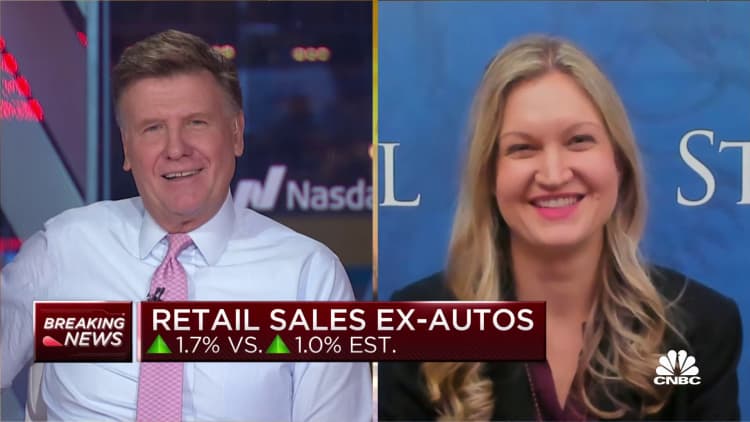As investors flock to municipal bonds, also known as muni bonds, the tax-free interest may trigger a costly surprise for higher-income retirees.
There's been record demand for U.S. municipal bond funds in 2021, with an estimated $85.36 billion in net inflows through September, according to Refinitiv Lipper data.
While demand slid from August through October, investors poured back into muni bonds in November, despite Democrats' stalled attempts to increase taxes on the wealthy.
However, muni bond interest may create a problem for affluent investors: Medicare premium hikes.
"There are a lot of moving parts, and you need to have someone look at it holistically," said Matthew Chancey, certified financial planner at Dempsey Lord Smith in Tampa, Florida.
Higher taxes and premiums
Although tax-exempt muni bond interest may be appealing, those earnings may increase Social Security taxes and Medicare premiums, said Tracy Sherwood, a Williamsville, New York-based CFP at Sherwood Financial Management.
That's because the formulas for Social Security taxes and Medicare Part B and Medicare Part D use so-called modified adjusted gross income or MAGI, which includes tax-exempt muni bond interest.
If half of someone's Social Security payments plus MAGI is more than $44,000 for a joint tax return ($34,000 for individual filers), up to 85% of their Social Security benefits may be taxable.
More from Personal Finance:
Here's how rising inflation may lead to higher tax bills
Risk-free bond pays 7.12% annual interest for next six months
How to pay 0% capital gains taxes with a six-figure income
But with relatively low thresholds, it's difficult for some higher-income retirees to avoid paying tax on 85% of Social Security payments, Sherwood said.
The bigger issue is that retirees with income above certain thresholds may owe a surcharge for Medicare Part B and Part D, known as the Income Related Monthly Adjustment Amount, or IRMAA.
The base amount for Medicare Part B premiums in 2022 is $170.10 per month, a 14.5% jump from 2021. However, the payments start to increase for joint filers with MAGI over $182,000 (single filers above $91,000).
"That's where you're looking at [Medicare Part B] premiums going up by about $70 or more per month," said Sherwood. "That's pretty significant."
The top Medicare Part B surcharge is $578.30 for couples filing together with MAGI at $750,000 or above.
Retirees may also see premium increases for Medicare Part D, typically covering prescription drugs, with the top surcharge at $77.90 for the highest earners in 2022.
Both calculations use MAGI from two years prior, so retirees need to consider the consequences of their income in advance, Sherwood said.

"It's something that taxpayers seem so aware of because if they get into this higher bracket, they have to pay higher premiums for a full year," said Mary Kay Foss, certified public accountant and CPA faculty at CalCPA Education Foundation in Walnut Creek, California.
It's something that taxpayers seem so aware of because if they get into this higher bracket, they have to pay higher premiums for a full year.Mary Kay FossCPA faculty at CalCPA Education Foundation
Of course, added taxes and premiums don't mean retirees should steer clear of muni bond investing. However, they may consider weighing the pros and cons of tax-exempt interest with a financial advisor.
"There's no such thing as a good or a bad product," Chancey said.
Retirees need to assess each investment in its totality — including risk, yield, growth potential, tax implications, creditor protection and more, he said. "I look at every investment, and I ask myself this question: 'Is the juice worth the squeeze?'"


